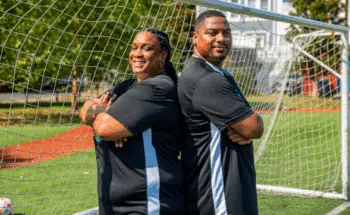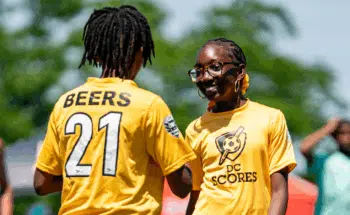Becoming SCORES: How A Young Founder and Her Friends Created the Poet-Athlete Movement
SCORES’ founder, Julie Kennedy, reflects on the Network’s origin story and growth as a grassroots legacy of the 1994 World Cup.
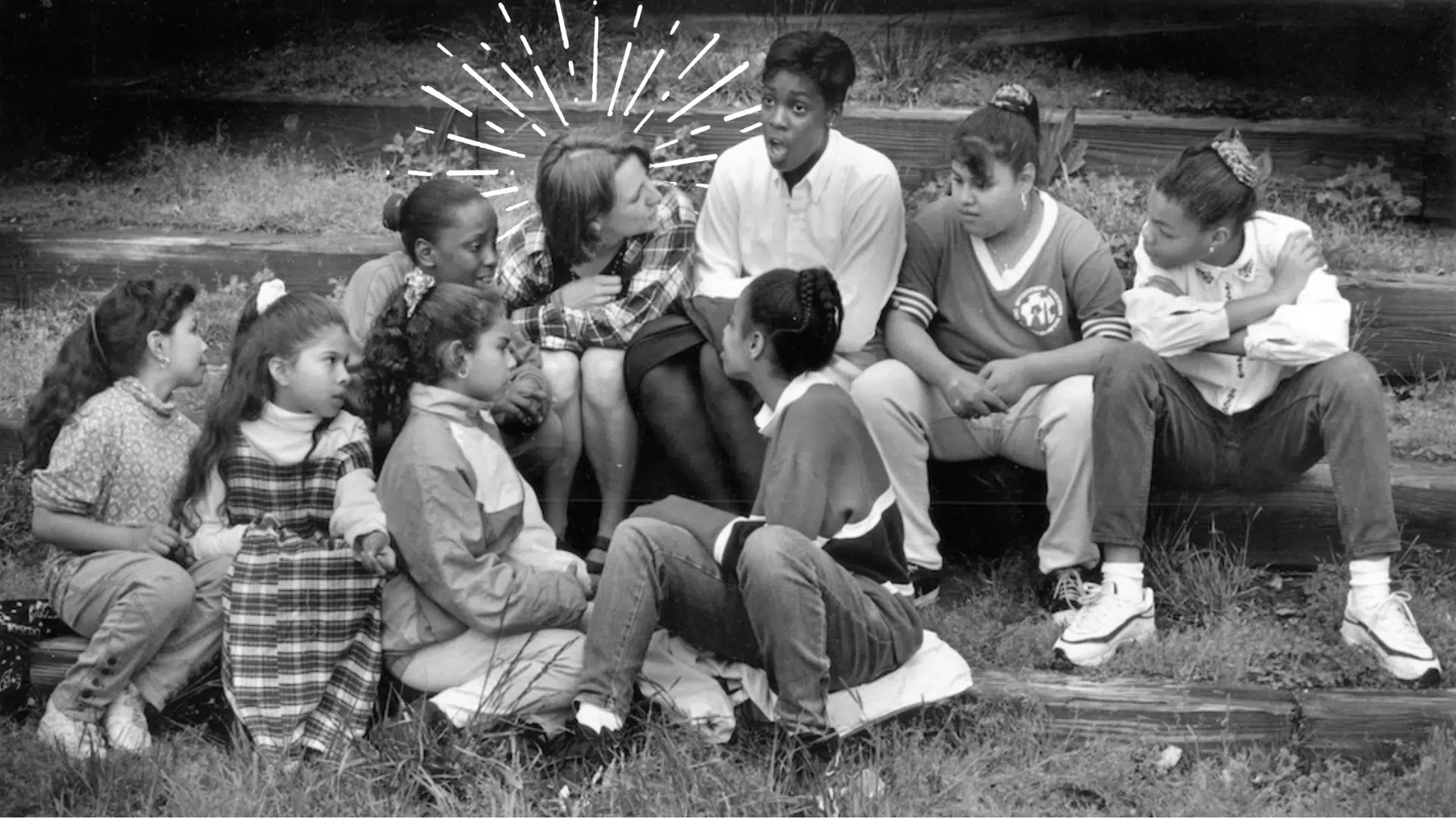
When Julie Kennedy founded the SCORES Network, she wasn’t long out of the K-12 education system herself.
At 21, the young Canadian had just completed a degree in International Affairs at Georgetown University and was serving as a Teach for America Fellow at Marie Reed Elementary in Washington, DC.
The creation of her free, after-school soccer, poetry, and service-learning program was born of necessity. She noticed that the girls in her class had few, if any, out-of-school time activities. “I was thinking about the community that I had grown up in. It was a really very tight-knit community, and I wanted to create that for other young girls,” she recalls.
“I looked at the skills that I had, which were not many at age 21,” she says. “I knew how to play soccer, and I knew how to write poetry.”
The SCORES Network was born.
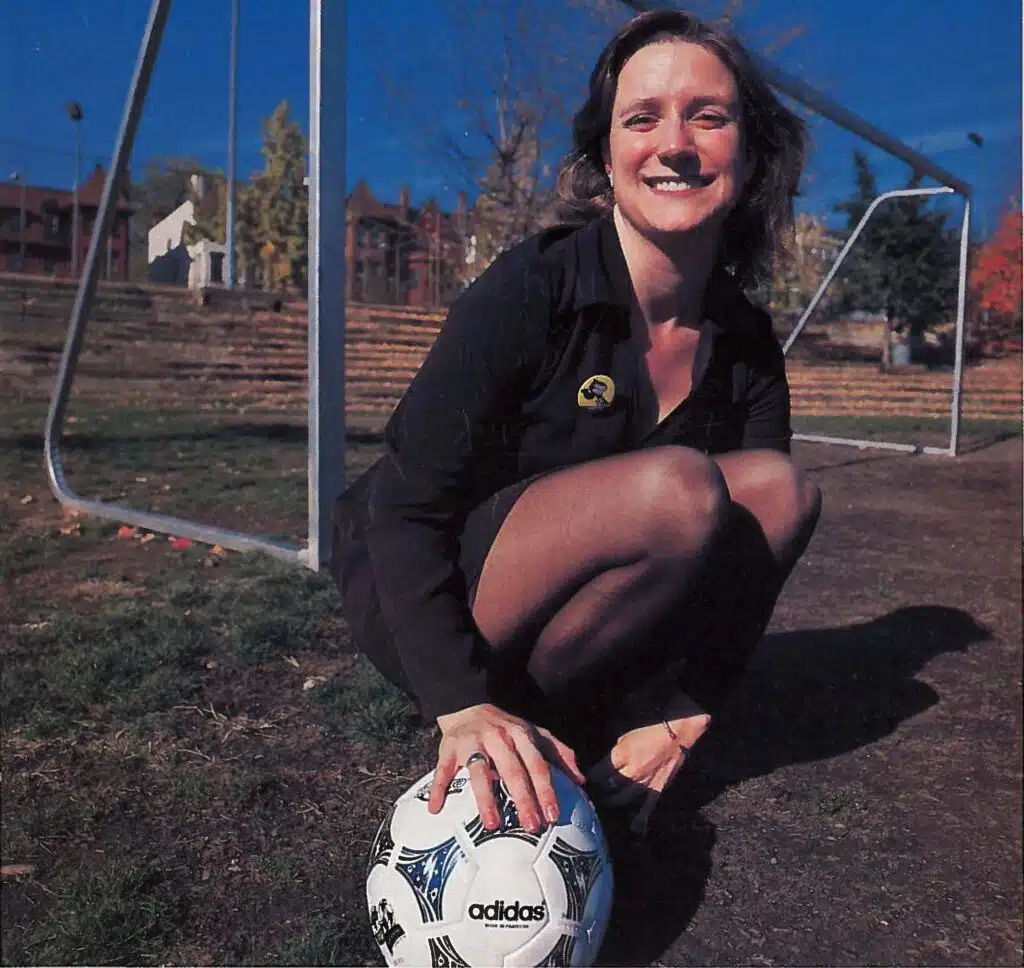
A Youth-Founded Program
Today, SCORES serves more than 30,000 young people, of all genders, across North America. The vast majority of its programming takes place within schools, where “poet-athlete” participants form teams mentored by thousands of coaches recruited from within their schools and neighborhoods.
But it all began with a group of young teachers committed to making a positive difference in the lives of their students.
Kennedy formed a girls’ soccer team at Marie Reed in the fall of 1994. When the weather was too bad to play outside, the girls wrote poetry about their lives and neighborhood. Soon, the poet-athletes were creating community service projects that addressed the issues they explored in their writing.
As Kennedy’s team grew, word spread among DC teachers about her soccer, poetry, and service-learning program. Her Teach for America colleagues were the first to bring the SCORES model to their schools. Principals quickly began approaching Kennedy to offer the program to their students.
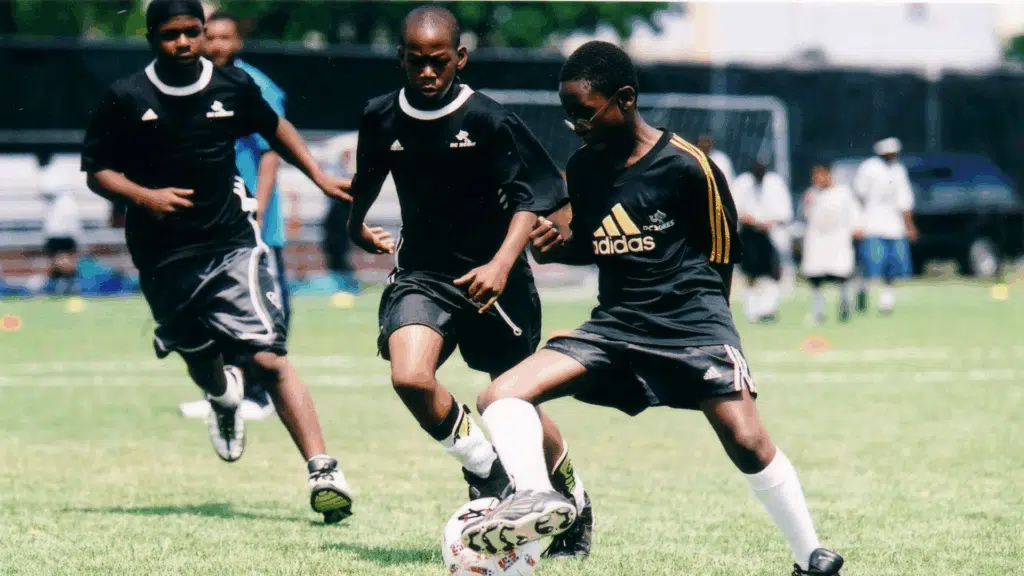
“We were literally all in our very early twenties, running around the city, doing this thing at four in the morning, getting up and lining soccer fields and getting the guy I used to babysit for to give us soccer balls!” Kennedy says of the program’s first year.
The soccer ball benefactor was Dodge Thompson, then the Chief of Exhibitions at the National Gallery of Art. A keen soccer fan and passionate supporter of the District’s young people, he also served on the 1994 World Cup Host Committee. The first World Cup to be hosted in the United States, the tournament had gripped the nation the summer before Kennedy started her program.
Thompson saw potential in SCORES and introduced Kennedy to his Host Committee colleagues. Those introductions would eventually result in SCORES becoming the tournament’s most successful grassroots legacy program.
The Network’s World Cup Origin Story
When Kennedy discusses SCORES’ early years, she reels off a long list of friends, colleagues, and supporters who were critical to its success.
Her Teach for America roommates, Elizabeth Pauley and Michael Mann, established teams at their schools. Marc Siegel, a friend from college, refereed games. (“He was a Brit, so he knew the rules of the game!” she explains.) Her friends Eric Stern and Linda Appel supported with equipment, field lining, and anything else that needed to be done.
Through Thompson, Kennedy met Peter Loge, a strategic communications expert; Anne Woodworth, a professional poet; and Len Oliver, a former professional soccer player and icon of the sport in DC. All of them would go on to serve as SCORES board members.
“The whole group really played an instrumental role in helping us get the recognition and visibility we got,” says Kennedy.
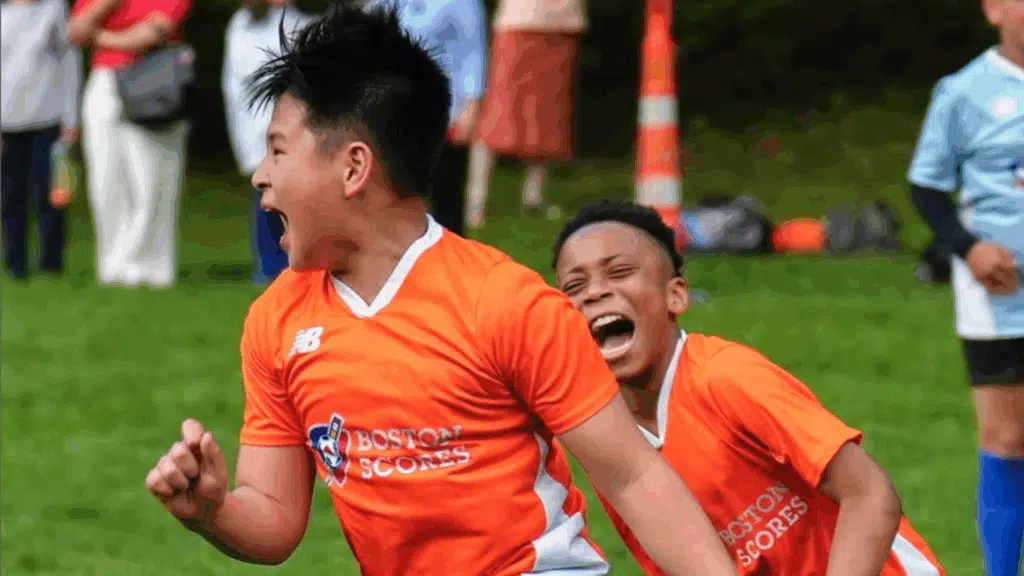
In 1997, DC SCORES received the first-ever grant from the U.S. Soccer Foundation, which was established in the wake of the 1994 World Cup to serve children in under-resourced communities through soccer. (SCORES would also receive the 1994 World Cup Legacy Fund’s last grant, disbursed in 2017.) The gift enabled SCORES’ expansion to Boston in 1997 and Chicago in 2000.
This transformational funding was testament to the unique energy of the 1994 World Cup, says Kennedy. The U.S. men’s and women’s national teams possessed promising talent, and leaders in the sport hoped that the United States would become a global soccer powerhouse by encouraging the development of homegrown players. “There was a real expectation that without engaging the talent of the inner cities, the sport would not grow in the country,” Kennedy says.
SCORES was perfectly positioned to maximize investment and introduce a new generation to soccer. However, Kennedy believes that the hard work and optimism of the program’s early staff and supporters meant it would have grown even in less favorable conditions.
“When you’re 21, I think for everybody, there’s no fear of failure,” Kennedy says. She reflects on her role now as the co-founder and Chief Executive Officer of RubyWell, a company dedicated to easing the financial strain on family caregivers: “Every day, I wake up thinking of all the things that could go wrong. SCORES, I don’t think I ever thought about the things that could go wrong. All I ever thought about was all the things that we could do!”
“I don’t think anyone else on my long list of people who were engaged ever thought about it either,” she adds. “That’s just the beauty of youth.”
An “Incredible” Organization
That relentless energy ensured the program’s rapid growth, but Kennedy admits that there were occasions when she needed to slow down.
She reflects on her position as a white, Canadian woman working in DC, the first majority-Black major city in the United States. Before the program could truly serve the needs of young people, SCORES needed to earn the trust and buy-in of communities of color who have long been the subjects of systemically racist policies, including in political representation, housing, and education.
“Just diving in as if [that history] didn’t exist may have helped me in some ways,” she says, “it gave me freedom in my head to say, let’s just dive in and everyone’s going to get involved.” But, after listening to and working with local community leaders, Kennedy’s approach shifted to establishing deep and authentic community relationships. She says, “It took real effort to demonstrate that I was in it for the long haul; that I wasn’t dropping in and out because I had an exit.”
“DC SCORES allowed me to get to know the entire city and people who lived across the entire city,” she continues. “There was a time when I knew DC as well as I knew the neighborhood I grew up in. I knew every street, every park.”
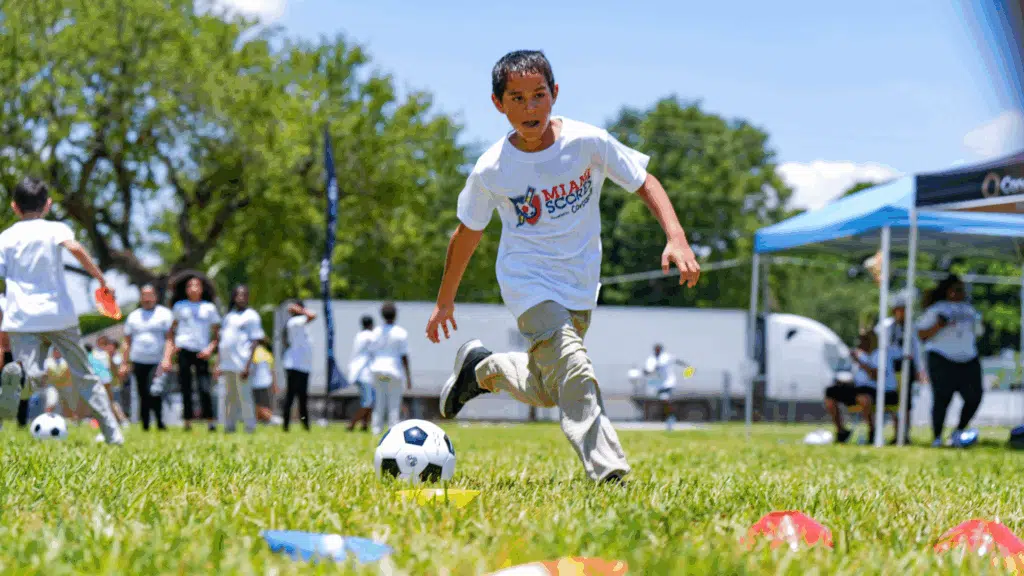
Today, SCORES programming is also reaching communities close to Kennedy’s childhood home. Canada SCORES was established in Vancouver in 2013 and last year launched programming in Toronto, the nearest city to Kennedy’s hometown. It was a full-circle moment for an organization that Kennedy says has always had roots in both the United States and Canada.
“My focus on community really came from growing up in a strongly British-Scotch-Irish communal small-town mindset that was very much part of Canadian culture,” she says. “But getting SCORES non-profit support and foundation support and big grants that helped us grow, that is very American, right? Leaning in and taking a bet on a 21-year-old who’s doing something insane is, for me, a very, very American mindset.”
Thirty years later, that bet has paid dividends as more and more young people become part of SCORES’ poet-athlete movement.
“[What SCORES is today] it’s incredible…I’m very aware that the reason the organization is as large and as strong as it is today is because of the people who came after me,” Kennedy says.
“I’m not only proud of my younger self,” she adds, “but really proud and thankful for the community that picked up the ball and kept running it down the field.”


